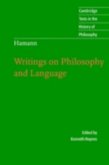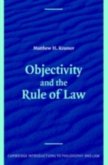The Principle of Sufficient Reason (PSR) says that all contingent facts must have explanation. In this 2006 volume, which was the first on the topic in the English language in nearly half a century, Alexander Pruss examines the substantive philosophical issues raised by the Principle Reason. Discussing various forms of the PSR and selected historical episodes, from Parmenides, Leibnez, and Hume, Pruss defends the claim that every true contingent proposition must have an explanation against major objections, including Hume's imaginability argument and Peter van Inwagen's argument that the PSR entails modal fatalism. Pruss also provides a number of positive arguments for the PSR, based on considerations as different as the metaphysics of existence, counterfactuals and modality, negative explanations, and the everyday applicability of the PSR. Moreover, Pruss shows how the PSR would advance the discussion in a number of disparate fields, including meta-ethics and the philosophy of mathematics.
Dieser Download kann aus rechtlichen Gründen nur mit Rechnungsadresse in A, B, BG, CY, CZ, D, DK, EW, E, FIN, F, GR, HR, H, IRL, I, LT, L, LR, M, NL, PL, P, R, S, SLO, SK ausgeliefert werden.
Hinweis: Dieser Artikel kann nur an eine deutsche Lieferadresse ausgeliefert werden.









